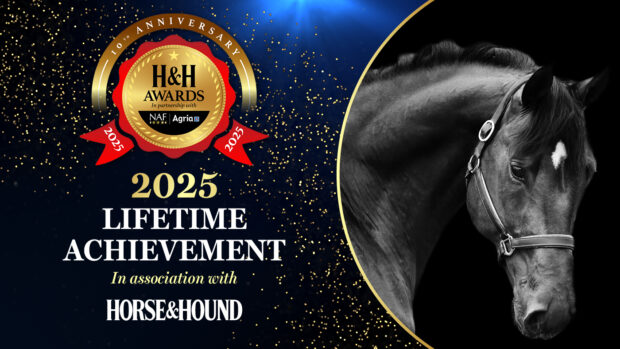Sponsored Content created with NAF
As the seasons change and the cooler, wetter months arrive, grass growth declines when the temperatures drop below around 10 degrees. In fact, with wetter weather all year round, this tends to slow down grass growth due to the moisture in the soil naturally reducing its temperature.
During these periods, as horse owners we feed more preserved forage to make up for the shortfall, this includes hay and haylage. Throughout the year, forage as long fibres should be the basis of our horses’ diet. For any horse, the general advice is to not drop below feeding 1% of bodyweight (BW) as forage, as a minimum to maintain gut health.
As that guide is for dry matter (DM) forage, it is important to weigh your forage and take into account its moisture content. For example, a 500kg horse should have a minimum of 5kg DM forage, but that might mean up to 10kg of haylage in the net for a relatively wet haylage (50% moisture). Increasingly, we see much drier haylage is being produced, so check with your supplier and make sure you know what you are feeding. If feeding hay, around 90% DM is typical, so that 5kg DM relates to 5.5kg as fed.

To avoid the muddy, wet conditions at this time of year, many horses spend more time in the stable or in turnout pens. This change in their diet can have a negative impact on their gut health, however, there are ways we can help them to help themselves.
In an ideal world, the rules of feeding dictate that we should “make changes to the diet gradually”. In practice, this is not always possible. New bales of hay or haylage typically arrive at the yard with only a few days left of existing stock, sudden changes in the weather can result in longer stabled periods – we each have our own unique set of circumstances.
As horse owners we have become increasingly aware of the impact gut health has on all bodily systems; around 70% of the immune system resides in the digestive tract, while the gut-brain axis regulates bodily function such as behaviour, hunger and cognition. As the horse is a hindgut fermenter, the gut has a vast set of microbes that make up the microbiome. Any sudden changes in diet can disrupt the microbiome and negatively impact bodily functions.

NAF has brought together a complex of gut-friendly biotics to help restore the balance between good and bad bacteria in the hindgut. NAF BioG delivers:
- Prebiotics– the lunchbox to feed the live probiotics
- Probiotics – the live cultures that help enhance the good bacteria to build beneficial microbes that help with the hindgut fermentation process – this is the process our horses undertake to digest their fibre
- Postbiotics – the beneficial metabolites that are the by-product of the fermentation process in the hindgut – feeding the benefit when gut health may be compromised
It is also important to remember that while we tend to focus on the hindgut, digestion begins in the mouth. Supporting the horse’s saliva with a complex that can encourage a healthy pH, as well as small intestine support for mucosal integrity, can help to promote efficient nutrient uptake.
Feeding with gut health in mind can help to retain healthy gut function and support the adaption process when changes occur during the wetter, winter months. To learn more visit: naf-equine.eu/uk/gut-health/gastriaid




